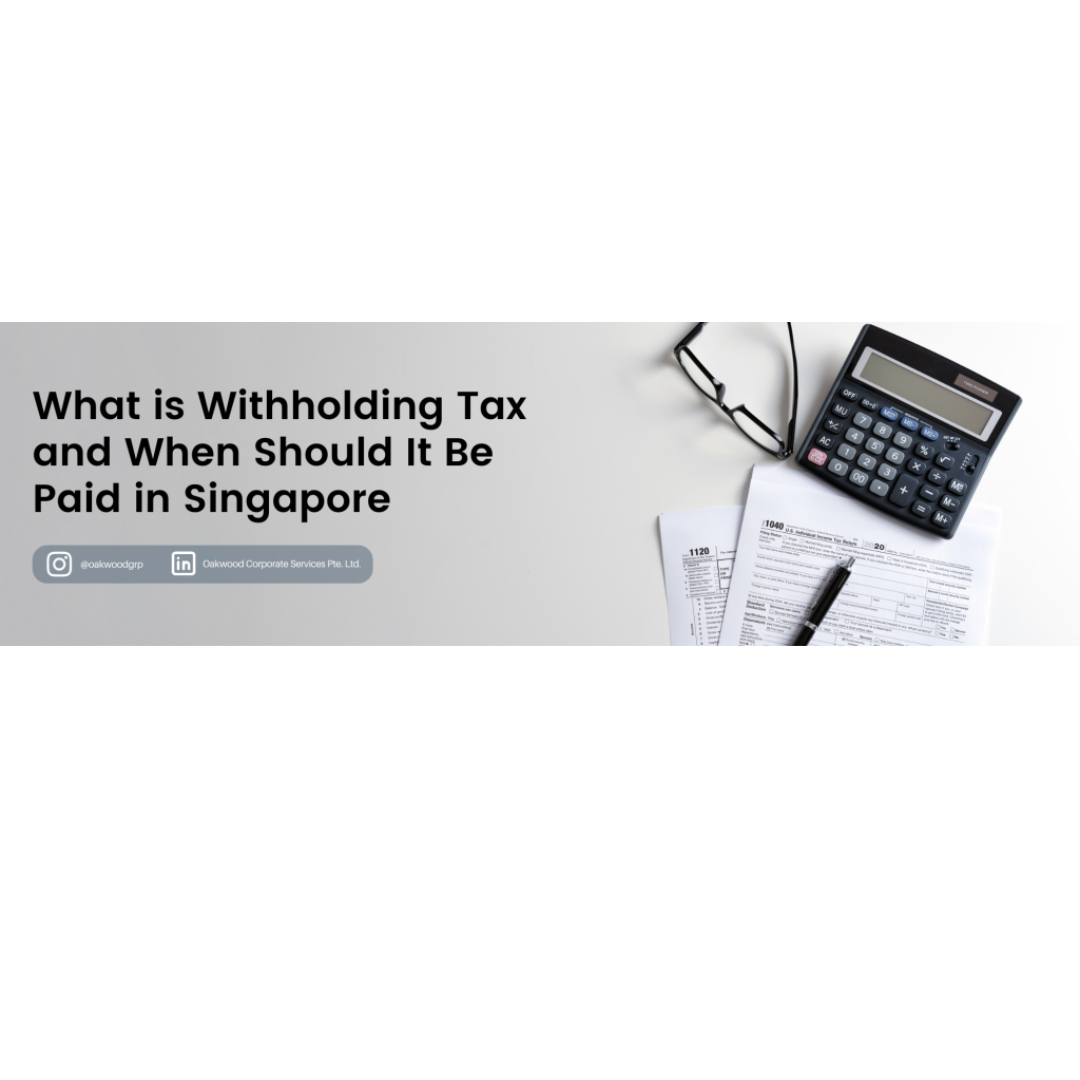
What is Withholding Tax and When Should It Be Paid in Singapore
With the increase in cross-border transactions, administering Singapore’s withholding tax compliance obligation has become more complicated and costly. To prevent severe consequences while minimizing their tax burden, taxpayers must completely grasp the mechanism of withholding tax. This is why it is very advisable for companies to hire third-party consultant services to assist with the complex tax processes in Singapore, especially those who are dealing with large volumes of cross-border transactions.

What is a Withholding Tax (WHT)?
When a Singapore resident or permanent establishment delivers particular payments (detailed below) to a non-resident company or person, a portion of the money paid must be “withheld” and given to the Inland Revenue Authority of Singapore. (IRAS). This is commonly referred to as withholding tax.
Who must withhold and pay WHT?
A business qualifies as non-resident if its management and control operations (largely decided by the location of the Board of Directors meeting) are not performed in Singapore, whereas an individual is considered non-resident if he is physically present in Singapore for less than 183 days in a calendar year.
What types of payments are subject to withholding tax and what is the tax rate?


What should I do to file WHT?
Filing and paying withholding tax can be done electronically through IRAS’s myTaxPortal. The person paying the withholding tax must first log in to his CorpPass account and submit an S45 Form detailing the nature of the payment. When a submission is successful, an acknowledgement page is presented with the tax payment due date. The payer can then pay using a variety of ways (including GIRO deduction, bank transfer, or even mobile banking services like the DBS PayLah! app).
When is the deadline for WHT Payment?
Except for WHT director’s fees, withholding tax is generally payable on the 15th of the second month following the day of payment to the non-resident, or on the 25th of the same month following the day of payment if you choose to pay by GIRO deduction. For more detailed scenarios and information, you can check on IRAS website.
Is there any penalty for late payment or non-payment of taxes in Singapore?
If the tax payment is not made by the due date, a 5% penalty will be imposed, plus an extra 1% for each month that the tax remains unpaid (up to a maximum of 15 months for a maximum of 15%, for a total penalty of 20%). In serious cases of late payment, IRAS may take additional recovery actions, such as immediately instructing your bank to pay monies held in your bank account and initiating legal action.
Therefore, it is critical to pay your taxes on time and to notify IRAS if you find any errors that are delaying your tax submission. Whenever you feel in need of a tax professional to manage your company’s taxes in Singapore, you can check Oakwood services at +65 8940 3532 (Kelly).

